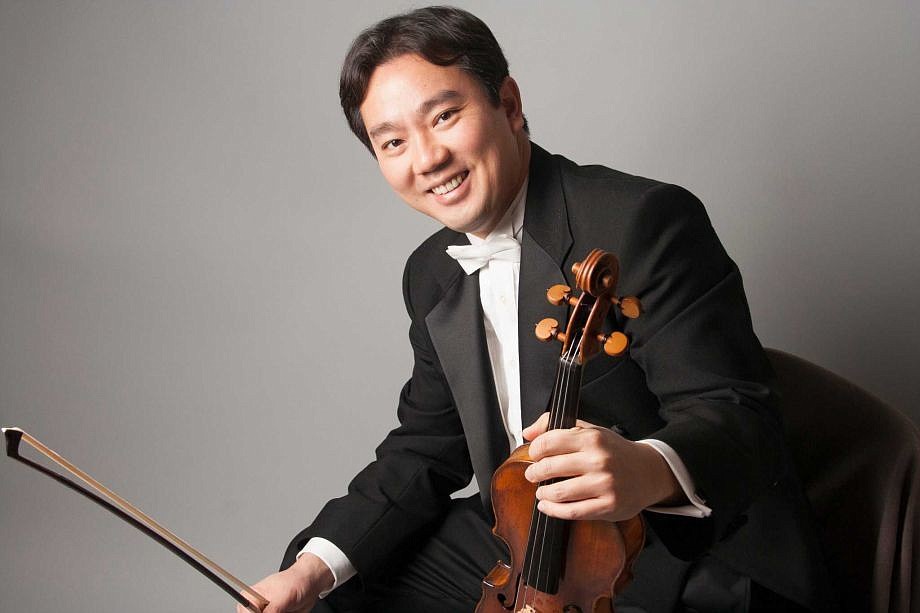- July 26, 2024
-
-
Loading

Loading

The 60 young, talented musicians who won places at this year’s Sarasota Music Festival were treated to a new set of faculty members this past week and their concerts at the Opera House over the weekend were awe inspiring.
As per the usual format, Friday night was devoted to chamber works performed by students and faculty, and the music spanned the classical, impressionistic, romantic and contemporary eras. Masterful students from Juilliard and Harvard offered an agreeable performance of the first movement of Faure’s Piano Quartet No. 1, followed by a very happy mix of students and professionals in Mozart’s Wind Serenade No. 12.
Copland’s Sextet was given a jazzy, bluesy reading by pianist Robert Levin and his colleagues. And students from Juilliard, Indiana, Yale and the New England Conservatory gave an assured performance of the opening of Brahms’ String Quintet in G, followed by six more students from as far away as the Royal College of Music for an eloquent presentation of the Larghetto from Ludwig Thuille’s charming Sextet in B-flat.
The concert concluded with a stylistic rendition of Max Bruch’s rarely performed, romantic and, at times, operatic-sounding String Octet by still another grouping of students and Masters.
Saturday brought an entirely different sensibility to the Festival when conductor Larry Rachleff led an orchestral concert that would be hard to beat at any all-professional Festival anywhere. It opened on the smaller side with “Octandre,” a challenging work featuring eight of the professional musicians — Thomas Robertello (flute/piccolo), Allan Vogel (oboe), Charles Neidich (clarinet/e-flat clarinet), William Winstead (bassoon), William Purvis (horn), Michael Dobrinski (trumpet), Dillon Swift (trombone) and Paul Ellison (bass) — who played the heck out of it. A difficult piece for listeners, it was good to be reminded of the experimentation composers like Edgard Varese did in the early part of the 20th century. Good for Festival leaders for programming it.
Mendelssohn’s E Minor Violin Concerto followed as the soloist, Frank Huang, a former student at the Festival who is currently concertmaster in Houston and is about to take that prestigious chair with the New York Philharmonic, took on the solo part with a sweet sound one rarely encounters in violinists these days. His exquisite tone was so perfect for the middle movement of the Concerto, it was almost as if Mendelssohn had had him in mind when he wrote the piece. Huang is a master musician with a love of chamber music that came through every time the orchestral tutti sections played and he turned to the younger instrumentalists as if he were performing their music with them. He will be a wonderful addition to the New York Philharmonic when he gets there in the fall.
Meanwhile, on the podium, Larry Rachleff was leading the Festival Orchestra with tremendous assuranceand clarity so their accompaniment of the Concerto was sheer perfection. And, when he raised his baton for the final work, Beethoven’s Eighth Symphony (in its debut at the Festival), he turned the young musicians in front of him into veterans, making music like the major orchestral ensembles of the world.
Rachleff never over-conducts but, rather, with the raise of an eyebrow or a meaningful look, draws sounds from his forces that are clear, colorful, incisive and magically musical. This Beethoven’s Eighth had a character and charisma rarely heard. It was dynamic and stylistic. And my guess is the audience, as well as the students, will remember it long into the future.